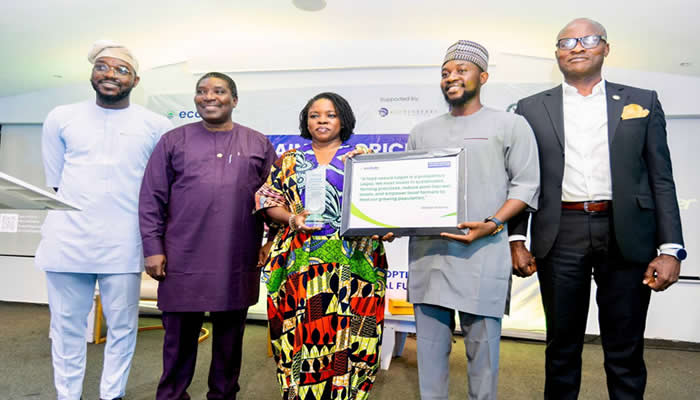Stakeholders in the agricultural sector have called for investment in cold chain infrastructure to address Nigeria’s annual post-harvest losses and boost food security.
According to a statement, the stakeholders made the call at the Cold Chain in Agriculture Roundtable 2025, organised by Ecotutu, a cold chain solutions firm, in Lagos.
Speaking at the event, industry leaders and policymakers lamented that up to 50 per cent of harvested crops are lost annually due to poor storage, weak logistics, and the near-absence of modern preservation systems.
In his keynote address, Executive Chairman of Origin Group, Joseph Samuel, represented by a director at Origin Tech, Olusesan Ayeni, said, “Cold chain is a core infrastructure, which is as essential as roads or electricity for feeding a growing population, enabling exports and transforming rural livelihoods.”
Samuel noted that while Nigeria is among Africa’s top producers of tomatoes, yam, cassava and citrus, “logistics infrastructure, cold chain, is underdeveloped or non-existent in many value chains.”
He urged the Federal Government to establish a collaborative ecosystem to drive cold chain development, warning that continued neglect would worsen food insecurity and economic losses.
Also speaking, Lagos State Commissioner for Agriculture and Food Systems, Abisola Olusanya, noted that the state government was supporting startups and innovators to build post-harvest technologies and data systems.
She said, “We are developing a unified database for farmers and the broader food industry to create a more efficient, transparent, and responsive food system within the state.”
Olusanya commended Ecotutu for deploying solar-powered cold chain facilities that have helped reduce food spoilage, remarking, “Efforts like these are critical to building a more robust and responsive food system for Lagos.”
The Deputy Consul General of the Netherlands in Lagos, Peter Keulers, announced that the Dutch government, in partnership with Lagos State, had launched the Polar Store, a solar-powered cold storage facility aimed at demonstrating renewable energy use in food preservation.
“The Polar Store serves as a training hub and a demonstration site for solar-powered cold storage,” Keulers said. “Post-harvest losses have been a significant challenge facing the Nigerian agricultural sector for a long time.”
In her welcome remarks, Ecotutu’s Head of Operations, Adejoke Nofiu, said the company had made “measurable progress” in reducing post-harvest losses across Nigeria.
She noted, “From deploying solar-powered mobile cold rooms to creating pay-as-you-chill models, Ecotutu has impacted thousands of farmers, traders and SMEs. We’ve helped extend the shelf life of fresh produce, supported smallholder farmers in reducing spoilage, and ensured that food travels farther, lasts longer, and feeds more people.”
The company’s Chief Executive Officer, Babajide Oluwase, said the roundtable was convened to push for scalable cold chain solutions and develop policy frameworks to combat post-harvest losses.
Industry experts at the roundtable unanimously agreed that solving the country’s food preservation crisis requires sustained investment in cold chain technology, targeted policy reforms, and private sector participation.
They warned that without urgent action, the country risks worsening hunger and economic instability in the face of a growing population.















